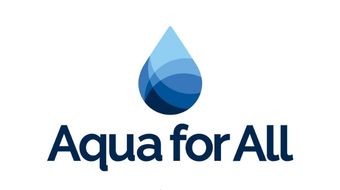A stepping stone towards the first standards for biosolids treatment
“It is evident that waste management needs development and to be involved with IAPMO in designing a missing puzzle piece for the sector’s growth has been incredibly rewarding. The innovation found within is enhanced by bright entrepreneurs dedicated to building business solutions to solve the sanitation crisis. The Interim Standards is a ready to use guide holding a powerhouse of potential, from bringing dignity to life, unlocking revenue streams as well as contributing towards climate-resilience by reducing the world’s dependence on chemical fertilisers — a gateway to a thriving and circular Sanitation Economy.”
– Sunil Agarwal, Programme and Partnerships Leader at Toilet Board Coalition
The Swachh Bharat Mission Urban 2.0 encourages cities to move towards ODF++, where faecal sludge and sewage is safely managed and treated before released into the environment through drains, water bodies or open areas. While the Central Pollution Control Board (CPCB) in India, has defined standards for water recovered from the treatment of used water, there are no standards for products derived from the treatment of bio-solids present in the used water.
As the number of treatment facilities increase across India, most facilities struggle to deal with the biosolids that remain after the treatment of used water. These biosolids are either given away to farmers nearby or they find their way to the landfills. However, if biosolids are treated properly, they could serve as a useful resource in the form of compost / soil conditioner / soil enhancer, help improve soil quality and consequently, the quality and quantity of agricultural output.
This provides an opportunity to generate revenue. Yet, this is only possible when the treatment is of an acceptable quality. The lack of Standards in this space makes it a challenge to formally compare and certify products derived from treatment of biosolids, thereby creating a bottleneck in realising this potential revenue stream.
To unblock this bottleneck, the Toilet Board Coalition in partnership with IAPMO India, together with a team of scientists, academia and entrepreneurs developed Interim Standards for compost derived from the treatment of faecal sludge. To develop these Standards, IAPMO India brought their expertise in developing standards and certification while the Toilet Board Coalition brought in business intelligence in the Sanitation Economy.
“The Guide Standard: Treated Faecal Sludge Compost for Non-food Applications is an important milestone in our quest for a sustainable world. Human waste – feces and urine is rich in organic matter and plant nutrients, and with the right processing has the potential to address soil health as well as food security, both being in a precarious state today! Pleased to partner with Toilet Board Coalition on this pioneering initiative and kickstart the journey for scaling up circular sanitation.”
– Nimish Shah, Managing Director at IAPMO India
The Interim Standards are applicable for non-food crops only. However, as a next step, the effect of compost on soil quality, quantity and quality of agricultural produce and safety of the handlers could be scientifically analysed. Based on the results, the Standards could be revised and eventually become applicable for food crops.
The Toilet Board Coalition will work with its network of business partners to explore the commercialisation of the compost derived from the treatment of faecal sludge, unlocking revenue potential of a circular product.






